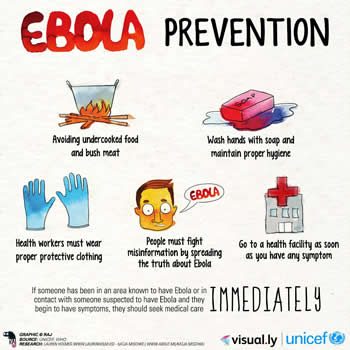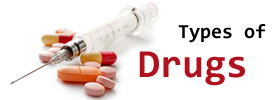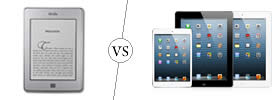Ebola Prevention Tips
Summary: In order to protect oneself from Ebola, one should take precaution and regularly wash their hands with soap. One should also take care to avoid contact with someone who appears to exhibit Ebola’s symptoms.

 Ebola is a rare and deadly disease that originated in West Africa. It was first discovered in 1976 near the Ebola River in the Democratic Republic of Congo, from which it derives its name. The disease was not that widespread before, it had 24 outbreaks that resulted in a total of 1,716 cases. However, that all changed with the 2014 Ebola outbreak in West Africa.
Ebola is a rare and deadly disease that originated in West Africa. It was first discovered in 1976 near the Ebola River in the Democratic Republic of Congo, from which it derives its name. The disease was not that widespread before, it had 24 outbreaks that resulted in a total of 1,716 cases. However, that all changed with the 2014 Ebola outbreak in West Africa.
The outbreak is centered in Guinea, Sierra Leone and Liberia, and has resulted in 13,042 reported cases with 4,818 deaths. The disease has spread across borders and has resulted in isolated cases in America and Europe. This has created a panic all around the world and people want to know how to protect themselves from the disease, especially since there is neither cure nor vaccine to stop the disease.
The only way that the disease spreads is through direct contact with the bodily fluids of an infected person or animal. This can include blood, saliva, mucus, vomit, feces, sweat, tears, breast milk, urine and semen. The virus present in these must then enter the non-infected person’s body through mucous membranes such as nose, mouth, eyes, open wounds, cuts and abrasions. The virus can also enter the body via the used of contaminated needles.
One benefit of the disease is that an infected person can only spread the disease if he is already showing the symptoms. He cannot spread the disease before. However, the patient can spread the virus through semen and breast milk up to a week after recovery. The people who are at the most risk of infection are the family of an infected patient. Health care professionals treating Ebola are also at a very high risk of contracting the disease.
In order to protect oneself from Ebola, one can take the following precautions:
- Regularly wash your hands with soap and water as and when needed or use an alcohol-based hand sanitizer.
- Avoid areas where there are known outbreaks of Ebola.
- Avoid direct contact with a person who may be exhibiting symptoms of Ebola.
- Avoid handling items that may have come in contact with an infected person’s blood or body fluids (such as clothes, bedding, needles, and medical equipment).
- Ebolaviruses can be eliminated with heat. In order to disinfect heat for 30 to 60 minutes at 60 °C or boil for 5 minutes.
- Surfaces can be disinfected by using some lipid solvents such as some alcohol-based products, detergents, sodium hypochlorite (bleach) or calcium hypochlorite (bleaching powder), and other suitable disinfectants appropriate concentrations.
- Avoid bushmeat as it is a primary source of infection. If must be eaten, ensure that the bushmeat is handled and prepared with appropriate protective clothing and thoroughly cooked before eating.
- Health care professionals caring for those infected with the Ebola virus should wear protective clothing including masks, gloves, gowns and goggles.
- Medical equipment used to care for Ebola patients, such as needles and syringes should be disposed carefully.
- Avoid direct contact with the body of an Ebola patient. Use safe burial practices.
Image Courtesy: blogs.unicef.org









Add new comment